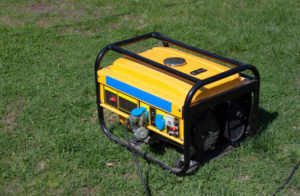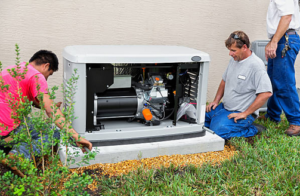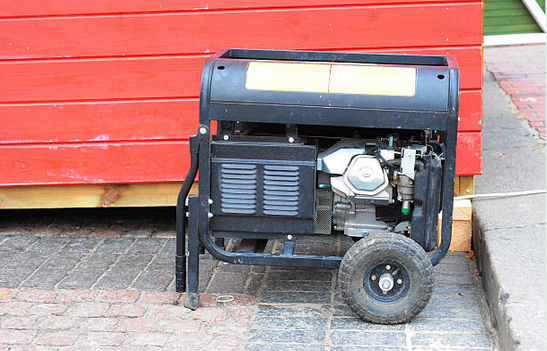The unpredictable climate around the world can lead to a problem for every house as a possible power outage occurs. Many dangers can happen when appliances stop working without electricity. During the winter session, for instance, people need to keep their heating system running if they do not want to freeze and get hypothermia inside the house. This condition has led many people to consider buying a power generator for their home.
 It is not a complicated job to buy one when you have the essential knowledge about selecting a generator. In case you don’t, there is home generators buyer’s guide you can read, including studying the types of generators. It is well-known that the most economical and practical way to generate electricity on-site is to purchase a portable generator that runs on one of the following fossil fuels: gasoline, diesel, or gasoline. Each type of fuel has its advantages and disadvantages. You can review those types of generators, so you pick one to generate electricity for your home.
It is not a complicated job to buy one when you have the essential knowledge about selecting a generator. In case you don’t, there is home generators buyer’s guide you can read, including studying the types of generators. It is well-known that the most economical and practical way to generate electricity on-site is to purchase a portable generator that runs on one of the following fossil fuels: gasoline, diesel, or gasoline. Each type of fuel has its advantages and disadvantages. You can review those types of generators, so you pick one to generate electricity for your home.
Gasoline Power Generator
Gasoline has higher energy content, which means this type can deliver more electricity per unit. However, it can be challenging to obtain when widespread power outages hit a site. It also has a high fire risk if mishandled near a hot generator. Besides, this type of generator requires proper gas removal from the generator if you do not use it. Never use the stored gasoline you have after a few months as the energy content might have been degraded.
Propane Power Generator
The advantage of propane power generator relies on its convenience that you do not have the storage and cleaning problems. Propane can be in storage for long periods without degrading its quality. Thus, it can be stored in enormous quantities for extended use, even if it has lower energy content. Like gasoline, propane power generator can also be difficult to achieve when widespread power outages hit an area and carry fire risk potential if mishandled.
Diesel Power Generator
Like gasoline, diesel also contains a higher energy content that allows a generator to run longer. Although the price is a bit higher than the others, the widespread power outage situation and the fire risk is even less threatening due to the higher flashpoint of the gas. However, you need to handle the gas removal from the generator as it is not good to save it in a more extended period.
Other Options
 Another option for homeowners who want to keep the electricity on is fixed generators. Although they are more expensive than portable generators, fixed generators offer some conveniences and advantages. It is convenient for some homeowners as there are more benefits, such as eliminating the need to refuel (without human intervention) constantly and the automatic activation of the generator that supplies power immediately after a power failure. This fixed electric generators can be configured to get the fuel they need to function as a gas tank from a source like a gas connection or perhaps a large propane tank. Unlike the portable one that is easy to use, the configuration needs another few thousand dollars for a professional installation.
Another option for homeowners who want to keep the electricity on is fixed generators. Although they are more expensive than portable generators, fixed generators offer some conveniences and advantages. It is convenient for some homeowners as there are more benefits, such as eliminating the need to refuel (without human intervention) constantly and the automatic activation of the generator that supplies power immediately after a power failure. This fixed electric generators can be configured to get the fuel they need to function as a gas tank from a source like a gas connection or perhaps a large propane tank. Unlike the portable one that is easy to use, the configuration needs another few thousand dollars for a professional installation.

